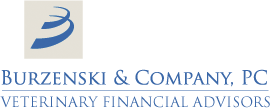Is your child thinking about taking on a job for extra money this summer? If so, both of you may have questions about taxes. The following are a few tax tips to help you prepare.
For 2017, your child can earn as much as $6,350 and not pay a dime in federal income tax. If your child's earnings won't exceed this amount, consider having the child claim "student–exempt" when completing the "Federal Withholding Allowance Certificate" (Form W-4). As long as your child's total income doesn't exceed the $6,350 limit, he or she may not need to file a 2017 tax return.
Don't overlook the fact Social Security and Medicare taxes will be withheld from your child's paycheck. While these payments are not income taxes, let your new worker know they will be withheld from his or her paycheck.
Keep in mind that self-employment income, tips, interest, dividends, and stock sales may impact your child's tax return filing requirement.
As long as you provide more than half of your child's support, you can continue to claim the child as an exemption on your tax return. Your child will lose his or her exemption, but that exemption deduction is typically more valuable to you than to your child.
If you need more details about the tax implications of your child's summer job, please call us at 203-468-8133.









